'People will forgive you for being wrong, but they will never forgive you for being right - especially if events prove you right while proving them wrong.' Thomas Sowell
Search This Blog
Friday, 9 February 2024
Wednesday, 29 November 2023
Friday, 11 August 2023
Economics for Dummies 3: Unveiling the Meaning and Deceptive Potential of Economic Indicators
ChatGPT
Economic indicators are critical tools used to assess the health of economies, guide policy decisions, and inform public perception. However, these indicators can sometimes be wielded with deceptive intent, masking complex realities beneath seemingly straightforward numbers. Let's explore some of the most prominent economic indicators, delve into their genuine implications, and uncover how they can be manipulated for deception.
- Unemployment Rate: Meaning: The percentage of the labor force that is actively seeking employment but is unable to find work.
- Genuine Implication: A high unemployment rate indicates underutilization of labor resources and potential economic distress.
Deception: Governments might manipulate the unemployment rate by excluding certain groups from the labor force calculation, leading to an artificially lower rate. For example, individuals who have given up looking for work may be excluded from the count, making the job market appear healthier than it actually is.
Example: During an election campaign, a government may boast about reduced unemployment by excluding discouraged job seekers. This paints a rosier picture of the job market's health than reality.
- Gross Domestic Product (GDP) Growth:
Meaning: The rate at which a country's total economic output (goods and services) expands or contracts over a specific period.
- Genuine Implication: GDP growth reflects the overall economic activity and can indicate the direction of a nation's economy.
Deception: Governments might inflate GDP figures through unsustainable means, such as excessive borrowing or neglecting environmental concerns. Such growth may not be indicative of a healthy, balanced economy.
Example: A government invests heavily in large infrastructure projects before an election, leading to a temporary spike in GDP growth. However, the long-term consequences of high debt and potential overcapacity in certain sectors may not be immediately apparent.
- Consumer Price Index (CPI):
Meaning: A measure of the average change over time in the prices paid by urban consumers for a market basket of consumer goods and services.
- Genuine Implication: CPI provides insight into inflation trends, which impact consumers' purchasing power.
Deception: Governments might adjust the CPI basket to exclude volatile items, giving a lower inflation reading than what most people experience in their daily lives.
Example: A government claims that inflation is low because the CPI doesn't include housing costs. However, for many citizens, housing costs are a significant portion of their expenses, and their lived experience of inflation could be higher than official figures suggest.
- Trade Balance:
Meaning: The difference between a country's exports and imports of goods and services.
- Genuine Implication: A positive trade balance (exports > imports) can indicate a competitive economy, while a negative balance might suggest over-reliance on imports.
Deception: Governments may focus only on the trade surplus or deficit, neglecting the underlying structural issues that contribute to these imbalances.
Example: A government highlights a trade surplus, implying economic strength, while overlooking the fact that it is achieved by exporting raw materials and importing finished goods. This pattern may hinder domestic manufacturing and technological innovation.
Economic indicators are valuable tools, but they must be interpreted in context and scrutinized for potential manipulation. Governments may use these indicators to shape public perception, especially during critical periods like elections. As informed citizens, it is vital to go beyond the surface numbers, question narratives, and demand transparency in how economic data is collected, reported, and interpreted. This empowers individuals to better understand the complex realities of the economy and make informed decisions.
--- Another Essay
Economic indicators are vital tools used to assess the health of economies, guide policy decisions, and provide insights into trends. However, these indicators can be wielded to deceive if not properly understood. Let's explore some of the most prominent economic indicators, what they truly convey, and how they can be manipulated or misunderstood for deceptive purposes.
- Unemployment Rate: The Unemployment Rate measures the percentage of the labor force that is jobless and actively seeking employment. It is often used to gauge the health of the job market and overall economic conditions.
True Meaning: A high unemployment rate indicates a potential lack of job opportunities and economic stagnation, while a low rate signifies a robust job market and economic growth.
Deceptive Potential: Governments can manipulate this indicator by encouraging discouraged workers (those who have given up on finding a job) to exit the labor force, artificially lowering the unemployment rate. This can create a false impression of improved employment prospects.
Example: In some cases, a government might claim a decrease in the unemployment rate, but this reduction could be due to people leaving the workforce rather than finding new jobs.
- Gross Domestic Product (GDP): GDP measures the total value of goods and services produced within a country's borders. It's often used as a key indicator of economic growth.
True Meaning: Rising GDP generally indicates economic expansion, while declining GDP suggests contraction. However, GDP growth alone doesn't account for how that growth is distributed among the population.
Deceptive Potential: Governments can focus on increasing GDP without addressing issues like income inequality or environmental degradation. This might lead to a scenario where overall economic growth looks impressive, but the benefits are disproportionately enjoyed by a small segment of the population.
Example: China's rapid GDP growth has been celebrated, but concerns arise due to environmental degradation and unequal distribution of wealth.
- Inflation Rate: The Inflation Rate measures the increase in the general price level of goods and services over time. It's used to assess changes in purchasing power.
True Meaning: Moderate inflation can be a sign of a healthy economy, but hyperinflation or deflation can have severe negative consequences.
Deceptive Potential: Governments can manipulate inflation calculations, underreporting it to downplay economic challenges. Additionally, focusing solely on the inflation rate might overlook specific goods or services experiencing much higher price increases.
Example: When governments claim to have reduced inflation, they might be referring to a slowing rate of increase rather than actual price decreases.
- Income Inequality Measures: Indicators like the Gini Coefficient and Income Quintile Ratios quantify the distribution of income within a society.
True Meaning: These indicators help assess the fairness and inclusivity of economic growth. A more equitable distribution generally leads to better social stability.
Deceptive Potential: Governments might focus on overall economic growth while neglecting to address widening income gaps. This can lead to a scenario where economic indicators look positive, but a significant portion of the population remains marginalized.
Example: A country with a declining Gini coefficient might still have a growing income gap if the distribution is becoming slightly less unequal among the wealthy while leaving the poor further behind.
Economic indicators offer valuable insights, but their interpretation requires careful consideration of context and underlying dynamics. To avoid deception, individuals and policymakers must look beyond the surface numbers, understand the true meaning of each indicator, and critically assess whether they reflect broad-based, sustainable economic progress rather than mere statistical manipulation.
Friday, 6 July 2018
What does teacher's report really mean?
- Is a sociable member of the class: Doesn't really come to school to work, much prefers having a gossip in the toilets
- Knows their own mind: Not particularly good at doing what they are asked to do
- Always enthusiastic when working in a group: Likes to be in charge, a proper bossy boots
- Full of self-confidence: A little too arrogant and won't take being told they are wrong
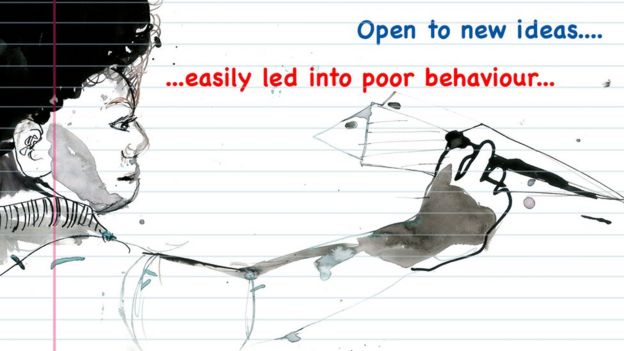
- Needs to channel their enthusiasm into their own work: Please get on with your own work and leave the rest of the class to get on with their own
- Is always curious: Shows too much interest in anything and everything except their work
- Enthusiastic contributor to class discussions: Always has an opinion on everything and shares it loudly at every opportunity
- Displays excellent listening skills: Never has an opinion on anything, would rather self-combust than put their hand up
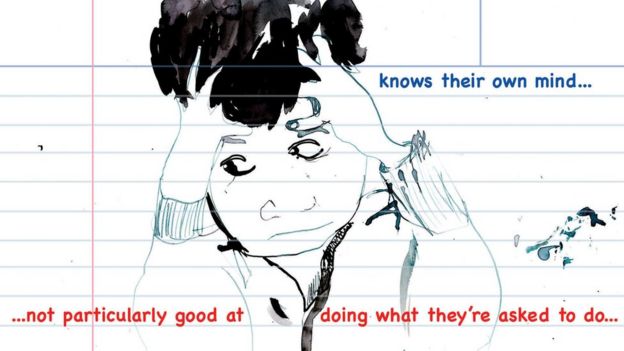
- Open to new ideas: Easily led into poor behaviour
- Wonderful unique character: Thank goodness there is only one like you in my class
- Has shown an interest in self-guided learning: Decides on a daily basis which work to complete
- Has an interesting and inquiring mind: Does your child ever stop asking questions?
- Occasionally lacks focus: Sits as far from the window as possible to prevent daydreaming
- Has a strong sense of right and wrong: Bit of a telltale if we are honest
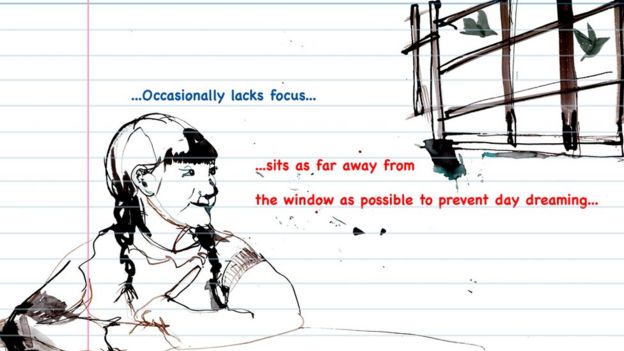
- Lively and enthusiastic: Goodness me your child is hard work
- Has a wide circle of friends: I have run out of seats to put your child in where they won't chat
- Knows the school rules well: Is reminded by me of them daily
- Makes everyone smile: Bit of a clown
- A bubbly, fun-loving personality: Honestly child, calm it down a little
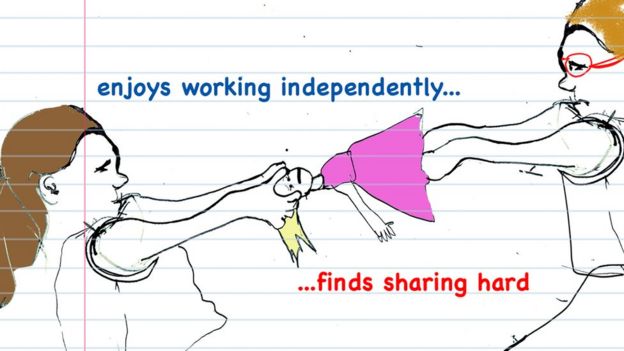
- Is ready for a new challenge: I'm counting down the days until the end of term
- Enjoys working independently: Finds sharing hard
- Is a pleasure to teach: Honestly, your child has helped preserve my sanity this year
Sunday, 10 December 2017
Words that are emptied of meaning - 'Hinduism is a tolerant religion and 'Islam is a religion of peace'.
“Suit the action to the word, the word to the action,” says Hamlet in William Shakespeare’s play. Hamlet’s advice is given to actors rehearsing a play within the play, but it is advice all of us can take. Words not suited to action are considered empty or hollow. We do not trust people whose words have little or nothing to do with their actions.
And yet, as communities, we tend to fall into this trap. We repeat some words, almost as if they were mantras, blithely ignoring the fact that our actions often do not vindicate such words.
The two most common sets of words that I hear these days come from Hindus and Muslims, all of them well meaning. Hindus in India keep telling me that “Hinduism is an inclusive, tolerant religion” and Muslims all over the world keep telling me that “Islam is a religion of peace.” Now, no doubt, they are largely right. There is much in history to suggest that Hinduism is an inclusive and tolerant religion, and that Islam puts a lot of stress on peace: the basic greeting of Islam, salaam-alai-kum, means ‘peace be on you.’
And yet, if we stop with these words, we are either being wilfully blind or displaying a remarkable lack of awareness and self-criticism. Because, very often, these words are not redeemed by action. Anyone who reads the newspapers today can see that not all Hindus are inclusive and not all Muslims are peace-loving.
The religion of Rahul Gandhi
One cannot help noticing that if Hinduism was always inclusive and tolerant, then the recent controversy over Rahul Gandhi’s religious beliefs would not have occurred. One also cannot help noticing that if Islam was equated solely with peace, groups of Muslims would not be shooting at each other in almost every third Muslim country in the world.
Let’s face it: why should the fact of Rahul Gandhi’s religious beliefs — or, for that matter, Jawaharlal Nehru’s agnosticism — become a matter of discussion in an India full of inclusive and tolerant Hindus? Let alone the fact that the oldest community of Christians in India can be dated back to 2,000 years, a truly inclusive and tolerant Hindu would not expect other Indians to obtain a ‘Hindu’ religious certificate in order to run for office. Similarly, surely, such a Hindu would be able to accept not just Indian Muslims, who have contributed to India for about 1,500 years, but also monuments, such as the Taj Mahal, associated with the so-called Muslim period of India. I must say that I was surrounded by really tolerant and inclusive Hindus in the India in which I grew up, and I must add that their numbers seem to be greatly reduced today.
Violence instead of protest
Similarly, the Muslim claim that Islam is a religion of peace seems hollow not just when one looks at what some Muslims are doing to other Muslims, but also when one hears religious discourses about the supposed ‘moral victory’ of Islam over other faiths. I will not even talk of Islamist terrorism, mostly because it is often discussed in excess to its reality, but surely some other people would bring it up, and who can say that their fears are totally unjustified? Islam might be a religion of peace, but too many Muslims seem to take recourse to violence instead of peaceful and democratic modes of protest and action.
Once again, this is a tendency that has increased in Muslim communities — where there is increasing impatience with those Muslims who do not kowtow to fundamentalist prescriptions.
In such a context, when Hindus say that Hinduism is an inclusive and tolerant religion, and Muslims say that Islam is a religion of peace, there can be only two explanations. First, and positively, what they mean is that the essence of Hinduism is inclusive and the essence of Islam is peaceful, and hence intolerant Hindus or violent Muslims are going against the essence of their own religions. If this is the intention, the statements are at least partly justified.
But, often, this is not the intention. The intention is not to critique wrong tendencies within Hinduism or Islam but to dismiss criticisms — from within or outside. Often, Hindus who beat the drum of the inclusiveness of Hinduism do so in order to dismiss contrary evidence, and so do Muslims who beat the drum of the peacefulness of Islam. In such cases, what they utter are empty words. Or worse: inclusiveness becomes a weapon to exclude, peace becomes a justification of violence.
The statements “Hinduism is an inclusive, tolerant religion” and “Islam is a religion of peace” contain much truth — but this truth has to be regularly vindicated by action. There seems to be an increasing failure to do so on the part of many Hindus and Muslims. Each one of us has to face up to this failure. Every time we use such words, we need to ask ourselves: do we really mean it, and does the evidence around us sustain such claims? We have to ask ourselves: are we using these words as ideals or as excuses?
Because, finally, words only mean what we put into them — by our daily acts. And when we use words that are being emptied of meaning, we simultaneously hollow out the rich and wonderful realities of our world.
Friday, 17 November 2017
Are our dreams trying to tell us something – or should we sleep on it?
What are dreams for? It’s one of those bottomless questions where the answer tells you mainly about the person doing the answering. Those who pride themselves on being hard-headed and scientific will say they’re meaningless nonsense or, at best, some kind of boring but essential process for consolidating the memories of the day. Those who think of themselves as spiritual, meanwhile, will insist they’re messages from beyond. Yet the hard-headed answer isn’t much more plausible than the kooky one. If dreams are random brain-firings, how come they have coherent narratives? And if they’re just a dull retread of everyday events, how come they’re so often wildly inventive, haunting or surreal? (Don’t worry, I won’t bore you with any of my own, though the famous fact that “nothing is more boring than other people’s dreams” is, in itself, rather interesting.) As James Hollis, a Jungian psychotherapist for whom dreams are far from meaningless, writes: “Who would make this stuff up?” Night after night, you go to bed and elaborately crazy stories plant themselves in your mind through no choice of your own! Don’t tell me something intriguing isn’t going on.
Dreams are hard to study in the lab, for the obvious reason that only you experience your own. Indeed, as the philosopher Daniel Dennett points out, you can’t even be certain you experience them, at least in the way you imagine. You “recall” them when you wake, but how do you know that memory wasn’t inserted into your mind at the moment of waking? Yet recent work by researchers including Matthew Walker, author of the new book Why We Sleep, strongly suggests dreams are a kind of “overnight therapy”: in REM sleep, we get to reprocess emotionally trying experiences, but without the presence of the anxiety-inducing neurotransmitter noradrenaline. In experiments, people exposed to emotional images reacted much more calmly to seeing them again after a good night’s dreaming. Neither dreamless sleep nor the mere passage of time duplicated that effect.
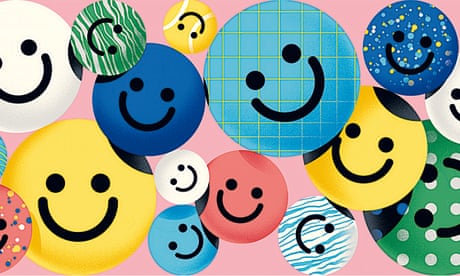
Carl Jung certainly wouldn’t have settled for that explanation, though. He argued– I’m simplifying here – that dreams were messages from the unconscious, offering, in symbolic form, insights and advice the conscious mind might have missed. That dream where you’re careening down a slope in a runaway shopping trolley towards a cliff edge: what might that be saying about how you need to change? So you wrote down a dream, then studied it, with or without a therapist, trying out different interpretations, and if one rang true – if it gave you goosebumps or triggered strong emotions – you pursued it further. What’s striking, you may have noticed, is that this approach would work even if Jung were wrong, and dreams were just random. If you treat them as potentially meaningful, retaining only those interpretations that really “click”, you’re going to end up with meaningful insights anyway. I’ve dabbled in this, and highly recommend it. To ask what your dreams might be trying to tell you is to ask deep and difficult questions you’d otherwise avoid – even if, in reality, they weren’t trying to tell you anything at all.
Saturday, 1 March 2014
Tuesday, 30 August 2011
Why you won't find the meaning of life
By Spengler
Much as I admire the late Austrian neurologist and psychiatrist Viktor Frankl, who turned his horrific experience at Auschwitz into clinical insights, the notion of "man's search for meaning" seems inadequate. Just what about man qualifies him to search for meaning, whatever that might be?
The German playwright Bertolt Brecht warned us against the practice in The Threepenny Opera:
Ja, renne nach dem Gluck
Doch renne nicht zu sehr
Denn alle rennen nach dem Gluck
Das Gluck lauft hinterher.
(Sure, run after happiness, but don't run too hard, because while everybody's running after happiness, it moseys along somewhere behind them).
Brecht (1898-1956) was the kind of character who gave Nihilism a bad name, to be sure, but he had a point. There is something perverse in searching for the meaning of life. It implies that we don't like our lives and want to discover something different. If we don't like living to begin with, we are in deep trouble.
Danish philosopher, theologian and religious author Soren Kierkegaard portrayed his Knight of Faith as the sort of fellow who enjoyed a pot roast on Sunday afternoon. If that sort of thing doesn't satisfy us (feel free to substitute something else than eating), just what is it that we had in mind?
People have a good reason to look at life cross-eyed, because it contains a glaring flaw - that we are going to die, and we probably will become old and sick and frail before we do so. All the bric-a-brac we accumulate during our lifetimes will accrue to other people, if it doesn't go right into the trash, and all the little touches of self-improvement we added to our personality will disappear - the golf stance, the macrame skills, the ability to play the ukulele and the familiarity with the filmography of Sam Pekinpah.
These examples trivialize the problem, of course. If we search in earnest for the meaning of life, then we might make heroic efforts to invent our own identity. That is the great pastime of the past century's intellectuals. Jean-Paul Sartre, the sage and eventual self-caricature of Existentialism, instructed us that man's existence precedes his essence, and therefore can invent his own essence more or less as he pleases. That was a silly argument, but enormously influential.
Sartre reacted to the advice of Martin Heidegger (the German existentialist from whom Jean-Paul Sartre cribbed most of his metaphysics). Heidegger told us that our "being" really was being-unto-death, for our life would end, and therefore is shaped by how we deal with the certainty of death. (Franz Kafka put the same thing better: "The meaning of life is that it ends.") Heidegger (1889-1976) thought that to be "authentic" mean to submerge ourselves into the specific conditions of our time, which for him meant joining the Nazi party. That didn't work out too well, and after the war it became every existentialist for himself. Everyone had the chance to invent his own identity according to taste.
Few of us actually read Sartre (and most of us who do regret it), and even fewer read the impenetrable Heidegger, whom I have tried to make more accessible by glossing his thought in Ebonics (The secret that Leo Strauss never revealed, Asia Times Online, May 13, 2003.) But most of us remain the intellectual slaves of 20th century existentialism notwithstanding. We want to invent our own identities, which implies doing something unique.
This has had cataclysmic consequences in the arts. To be special, an artist must create a unique style, which means that there will be as many styles as artists. It used to be that artists were trained within a culture, so that thousands of artists and musicians painted church altar pieces and composed music for Sunday services for the edification of ordinary church-goers.
Out of such cultures came one or two artists like Raphael or Bach. Today's serious artists write for a miniscule coterie of aficionados in order to validate their own self-invention, and get university jobs if they are lucky, inflicting the same sort of misery on their students. By the time they reach middle age, most artists of this ilk come to understand that they have not found the meaning of life. In fact, they don't even like what they are doing, but as they lack professional credentials to do anything else, they keep doing it.
The high art of the Renaissance or Baroque, centered in the churches or the serious theater, has disappeared. Ordinary people can't be expected to learn a new style every time they encounter the work of a new artist (neither can critics, but they pretend to). The sort of art that appeals to a general audience has retreated into popular culture. That is not the worst sort of outcome. One of my teachers observes that the classical style of composition never will disappear, because the movies need it; it is the only sort of music that can tell a story.
Most people who make heroic efforts at originality learn eventually that they are destined for no such thing. If they are lucky, they content themselves with Kierkegaard's pot roast on Sunday afternoon and other small joys, for example tenure at a university. But no destiny is more depressing than that of the artist who truly manages to invent a new style and achieve recognition for it.
He recalls the rex Nemorensis, the priest of Diana at Nemi who according to Ovid won his office by murdering his predecessor, and will in turn be murdered by his eventual successor. The inventor of a truly new style has cut himself off from the past, and will in turn be cut off from the future by the next entrant who invents a unique and individual style.
The only thing worse than searching in vain for the meaning of life within the terms of the 20th century is to find it, for it can only be a meaning understood by the searcher alone, who by virtue of the discovery is cut off from future as well as past. That is why our image of the artist is a young rebel rather than an elderly sage. If our rebel artists cannot manage to die young, they do the next best thing, namely disappear from public view, like J D Salinger or Thomas Pynchon. The aging rebel is in the position of Diana's priest who sleeps with sword in hand and one eye open, awaiting the challenger who will do to him what he did to the last fellow to hold the job.
Most of us have no ambitions to become the next Jackson Pollack or Damien Hirst. Instead of Heidegger's being-unto-death, we acknowledge being-unto-cosmetic surgery, along with exercise, Botox and anti-oxidants. We attempt to stay young indefinitely. Michael Jackson, I argued in a July 2009 obituary, became a national hero because more than any other American he devoted his life to the goal of remaining an adolescent. His body lies moldering in the grave (in fact, it was moldering long before it reached the grave) but his spirit soars above an America that proposes to deal with the problem of mortality by fleeing from it. (See Blame Michael Jackson Asia Times Online, July 14, 2009.)
A recent book by the sociologist Eric Kaufmann (Will the Religious Inherit the Earth?) makes the now-common observation that secular people have stopped having children. As a secular writer, he bewails this turn of events, but concedes that it has occurred for a reason: "The weakest link in the secular account of human nature is that it fails to account for people's powerful desire to seek immortality for themselves and their loved ones."
Traditional society had to confront infant mortality as well as death by hunger, disease and war. That shouldn't be too troubling, however: "We may not be able to duck death completely, but it becomes so infrequent that we can easily forget about it."
That is a Freudian slip for the record books. Contrary to what Professor Kaufmann seems to be saying, the mortality rate for human beings remains at 100%, where it always was. But that is not how we think about it. We understand the concept of death, just not as it might apply to us.
If we set out to invent our own identities, then by definition we must abominate the identities of our parents and our teachers. Our children, should we trouble to bring any into the world, also will abominate ours. If self-invention is the path to the meaning of life, it makes the messy job of bearing and raising children a superfluous burden, for we can raise our children by no other means than to teach them contempt for us, both by instruction, and by the example of set in showing contempt to our own parents.
That is why humanity has found no other way to perpetuate itself than by the continuity of tradition. A life that is worthwhile is one that is worthwhile in all its phases, from youth to old age. Of what use are the elderly? In a viable culture they are the transmitters of the accumulated wisdom of the generations. We will take the trouble to have children of our own only when we anticipate that they will respect us in our declining years, not merely because they tolerate us, but because we will have something yet to offer to the young.
In that case, we do not discover the meaning of life. We accept it, rather, as it is handed down to us. Tradition by itself is no guarantee of cultural viability. Half of the world's 6,700 languages today are spoken by small tribes in New Guinea, whose rate of extinction is frightful. Traditions perfected over centuries of isolated existence in Neolithic society can disappear in a few years in the clash with modernity. But there are some traditions in the West that have survived for millennia and have every hope of enduring for millennia still.
For those of you who still are searching for the meaning of life, the sooner you figure out that the search itself is the problem, the better off you will be. Since the Epic of Gilgamesh in the third millennium BC, our search has not been for meaning, but for immortality. And as the gods told Gilgamesh, you can't find immortality by looking for it. Better to find a recipe for pot roast.
Spengler is channeled by David P Goldman. View comments on this article in Spengler's Expat Bar forum.
(Copyright 2011 Asia Times Online (Holdings) Ltd. All rights reserved. Please contact us about sales, syndication and republishing.)